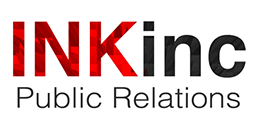The terrible tragic events of this week in Ukraine seem so far from the comfortable world of public relations. We PR professionals deal mainly in soft news. The kinds of stories about our clients that position them in business or put a positive spin on their management or new mobile app are the everyday fodder of any PR firm going about its business 8,000 miles from the horrors of an invasion and war. But sometimes real hard news, the kind media correspondents are risking their lives to report from cities being shelled, or a countryside enveloped by armored convoys, or even the plight of the refugee camps, takes us out of our comfort zone and jogs us back to what real news looks like – real stories of the human condition.
Personally, I am reminded of a time not so long ago when the two worlds of PR and hard news collided and produced one of my most enduring memories. A memory of where, to this day, I feel the most proud of what my profession can accomplish. The United Jewish Appeal is a charitable organization dedicated to raising money in the U.S. to provide assistance to Jews in underdeveloped countries. It is the second largest charity in the amount of annual giving to the The United Fund. I was approached by UJA’s honorary chairman, who happened to sit on the board of another of my clients, who had suggested he contact me. The task, he said, was to bring attention to the plight of Jews in some of the central Asian countries of the former Soviet Union who were attempting to emigrate to Israel because of severe antisemitism in their native countries. It seems since the fall and dismemberment of the Soviet Union with its aftermath of economic turmoil, Jews residing in many of these central Asia countries were feeling increasingly threatened by the Soviet hierarchy in Moscow. Once again Jews were being easily targeted for all the ills the Russian people were suffering because of the collapse of the ruble and the sudden loss of the strict social structures they’d been living under since Stalin. Adding to this problem was the major source of monetary help, charitable giving through the UJA in the United States, to assist these Jewish citizens had slackened recently, and the organization was anxious to see it return and then some. The UJA already had a sophisticated direct marketing and advertising campaign but it didn’t seem to be convincing donors in the US to dig deeper to help. The organization’s chairman thought it needed the added credibility of national publicity similar to what we had accomplished for his business interests. We accepted the challenge, but under the condition we treat this assignment as the journalistic endeavor it was. I insisted my team actually go to these countries to see the plight first-hand. This would enable us to develop up-close and personal stories to pitch the U.S. media upon our return. The client supplied us with a video team and translators, and we embarked on a three-week journey first to Moscow, gaining background on the problem and the former Soviet Union’s attitude toward these Jewish families. Then on to Uzbekistan for a deeper understanding of exactly what these Jewish families were facing. We went to their homes and their synagogues to learn all we could about their history and the fears they faced in being forced from the homeland. From the capital, Tashkent, we flew on midnight freedom flights to Jerusalem with nearly two hundred Jewish families at a time carrying everything they owned in one single large duffle bag per household huddled against the cold as they lined up to board these planes at midnight to avoid Russian soldiers. We interviewed throughout the night on the plane and as they boarded buses in the dawn of their new land, frightened and totally alone as they faced a new life. We continued following the refugees as they attempted to assimilate into their new home in Israel—some into completely different livelihoods, from doctors and professors to sanitation workers and janitors. After three weeks of traveling with them, hearing and photographing their stories—their very human stories of suffering and salvation, we built and refined our pitch to the U.S. media. Within a week of returning, we had secured major network stories and morning show interviews featuring our video footage as well as national newspaper and wire coverage. Within another few weeks contributions soared into the charity’s coffers and additional flights were scheduled. More importantly, much more importantly, we knew that the two worlds of PR and hard news had come together to affect something much more than a client’s bottom line or brand image. We felt pride, incredible pride, we had done something humane and good by revealing real stories of the human condition.
Now once again my heart aches as I watch the dispatches from Ukraine, knowing these stories continue from yet another country and another group of citizens victimized by ignorance and fear.
